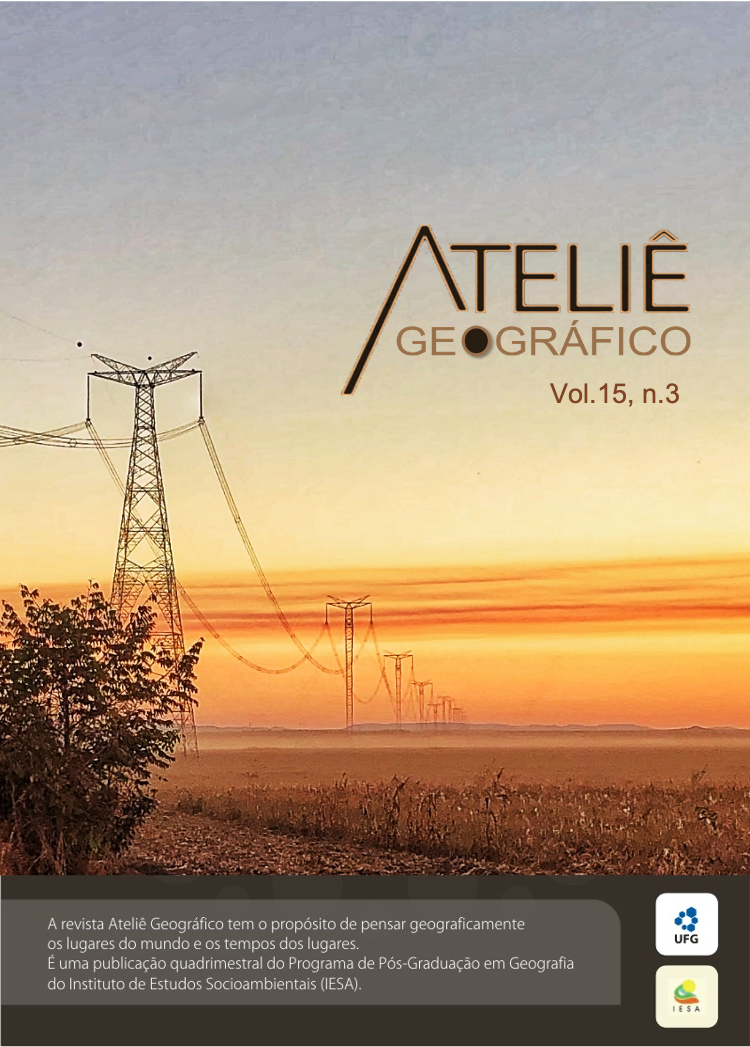Ouvir o território e pensar por outras (geo)grafias: territorialidades em r-existência à mineração na Amazônia
DOI :
https://doi.org/10.5216/ag.v15i3.70201Résumé
O ideário de desenvolvimento da Amazônia encontrou nos Grandes Projetos de Mineração um mecanismo capaz de suspender toda a diversidade regional, em nome de uma geografia mais “racional”. Este artigo problematiza esse processo, tomando como campo empírico de análise a diversidade territorial do corredor Carajás-Itaqui, para pluralizar os sentidos de um espaço pensado, unicamente, para seguir os tempos financeirizados das commodities. Mais do que analisar as tecnologias políticas de exceção que normalizam os fluxos capitalistas de matéria e energia, tomamos distintas territorialidades em r-existência à mineração em Carajás como imperativo político e epistêmico a demonstrar que os caminhos do ferro na Amazônia, também são caminhos indígenas, quilombolas, camponeses, pescadores. Essas experiências de alteridade, marcadas na expressividade do território-floresta indígena, na territorialização dos sons dos Awá-Guajá, nos territórios do cuidado quilombola, nos territórios de uso comum das quebradeiras de coco babaçu e na territorialidade de pescadores, não são apenas modos de pensar distintos, mas também diferentes modos de sentipensar o espaço, outras ontologias que nos apresentam outro repertório geográfico e político.
Palavras-chave: Ouvir o território, territorialidades em r-existência, (geo)grafias.
Téléchargements
Téléchargements
Publié-e
Comment citer
Numéro
Rubrique
Licence
Autores que publicam nesta revista concordam com os seguintes termos:- Autores mantém os direitos autorais e concedem à revista o direito de primeira publicação, com o trabalho simultaneamente licenciado sob a Licença Creative Commons Attribution que permite o compartilhamento do trabalho com reconhecimento da autoria e publicação inicial nesta revista.
- Os autores não serão remunerados pela publicação de trabalhos na Revista Ateliê Geográfico. Além disso, os conteúdos publicados são de inteira e exclusiva responsabilidade de seus autores, ainda que reservado aos editores o direito de proceder a ajustes textuais e de adequação às normas da publicação.
- Autores têm permissão e são estimulados a divulgar seu trabalho online (ex.: em repositórios institucionais ou na sua página pessoal), já que isso pode gerar alterações produtivas, bem como aumentar o impacto e a citação do trabalho publicado (Veja O Efeito do Acesso Livre).


